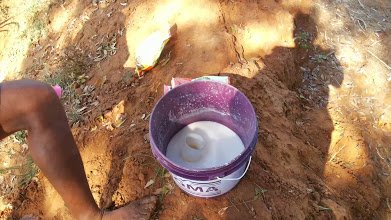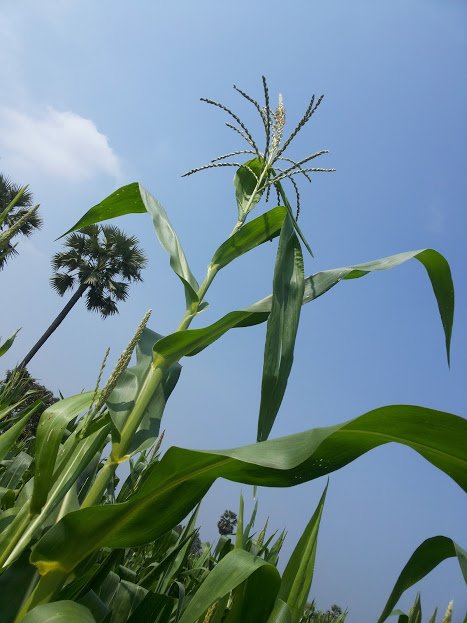This is my first post i am afraiad and excited
As every one in steem platform, I too would like introduce my self to all the steem users as i am still naive in steem blogging....
I am Saibabu working for the American MNC in India.
I studied masters in Agriculture , So I was in the agriculture farming ..especially corn(Maize) hybrid seed production. May be unnoticingly i am into this field and and i am enjoying this and i am also happy because by being part of the maize producer.
Facts About Maize and its Hybrids...
A 60% increase in food production must be attained by 2050 when the global population growth will result in over 9 billion persons inhabiting the planet.
Plants account for over 80% of the human diet and nutrition.
250,000 plant species of higher plants are described/identified of which 30,000 plant species are edible. Of these, 30 plant species represent crops that feed the world, while only 5 cereal crops (rice, wheat, maize, millet and sorghum) provide 60% energy intake of the world population.
Maize ranks first in world staple food production as per 2012 FAO statistics.
**By FAO(Food and Agriculture Organization(United Nations))**
Corn (maize) is considered the only important cereal crop that evolved in the Americas. Probably originated in Mexico - archaeological evidence of existence 7,000 years ago has been found in Mexico’s valley of Tehuacan.It evolved from teosinte (Zea mexicana). Corn seed production became a major agricultural industry when realized that hybrid lines could significantly outyield open pollinated lines.
In 1933, < 1% of corn planted in the U.S. represented hybrids. During this period the development of inbreds, and crossing with other inbreds to produce double-cross hybrids resulted increased grain yields by 10-40% over traditional OP varieties. Because of double cross combinations and their superior performance caused rapid adoption of corn hybrids by farmers.
What are open pollinated varieties :
"Open pollinated" generally refers to seeds that will "breed true." When the plants of an open-pollinated variety self-pollinate, or are pollinated by another representative of the same variety, the resulting seeds will produce plants roughly identical to their parents. This is in contrast to the seeds produced by plants that are the result of a recent cross (such as, but not confined to, an F1 hybrid), which are likely to show a wide variety of differing characteristics.
Open-pollinated varieties are also often referred to as standard varieties or, when the seeds have been saved across generations or across several decades.
What are Hybrids:
Maize hybrids are created by crossing, or breeding, two different inbred parent lines with desired characteristics to combine into a hybrid. To develop stellar seed performers, Researchers evaluate multiple generations of inbreds and use computer networks and other technologies to help them select the best-performing plants. When an inbred exhibits genetic purity and consistently delivers high yield, it is identified as a potential parent. Tens of thousands of hybrid maize crosses are made every season, however, less than one percent of these hybrids will meet the requirements to be a commercial hybrid.
With the impacts of climate change and rising populations, hybrids play an important role in combating world hunger.
Hybrids out perform open pollinated varieties (OPvs) by a significant margin.
To put above above things in simple terms.......
- Maize is one of the world staple food.
- Maize hybrids feed more people on the earth than the op varieties.
- It improves indirectly livelihood of the people by improving their income.
- It improves the dignity of the farming community.
- It feeds people in many ways.....
So i am always feel happy being in this field and being the part whole maize production...
I used to put my best effort and knowledge to improve quality of the produce which is bought by farmers to produce commercially.
As part of my everyday work
I do suggest good chemicals to the farmers to combat deceases (per acre production).

I do rougue odd plants which improves quality.

I used to inspect every field for more produce per acre and for good quality produce.

Final produce after my effort…..
This is my every routine life and sorry if bored you any one……
Thanks to Steem …
Dont be afraid, welcome to the community we are all very glad you are here!
Great to have you with us!
Here are some tips if you're not aware of already:
#NSFWor for#testonlypliss votes back
https://steemit.com/introduceyourself/@gilang-ramadhan/hii-steemer
there is an art to upvoting read my post before you do
https://steemit.com/steemit/@jillstein2016/voting-power-secrets-whales-don-t-want-minnows-to-know